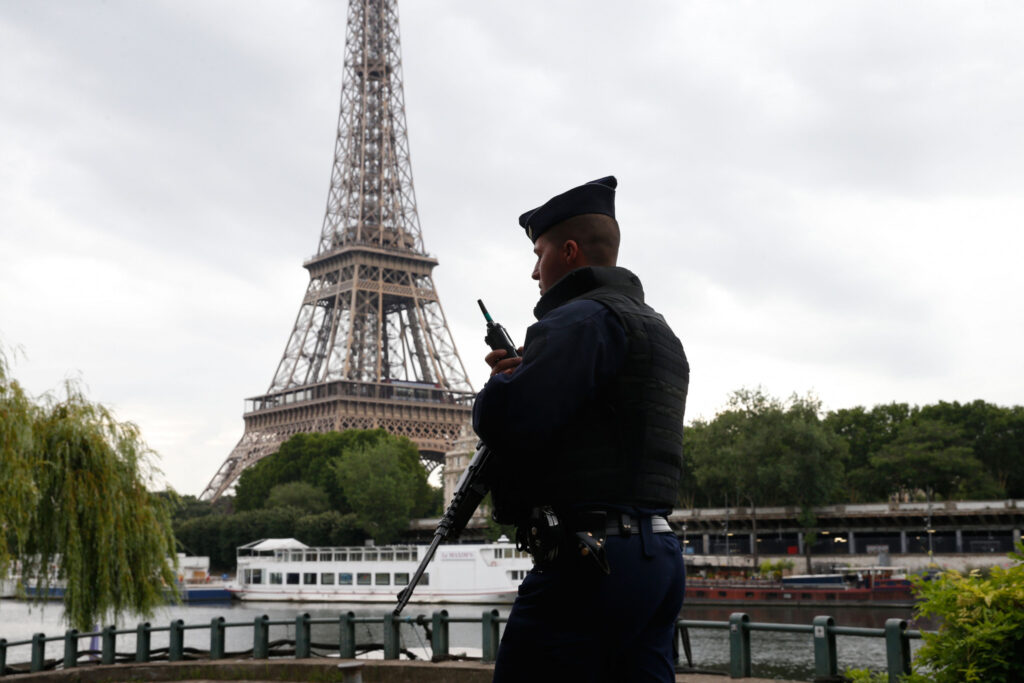
France’s rail network was hit by what authorities are calling “malicious arson” just hours before the opening of the Summer Olympic Games. Rory Steyn, the co-founder of NSA Global Security Consultants, which specialises in security at major sports events, told NSN that he does not believe it was a terrorist attack or cyber hack. Steyn said it appears to be an old-school manual attack using arson. He expressed confidence that French authorities would learn from the incident and adjust their strategies accordingly.
“Where there are gaps, the French authorities will pivot and deploy resources to plug the holes,” Steyn said. “It certainly isn’t entirely unpredictable that something would happen, that there would be an incident. Let’s hope this is the last one and hope it’s not a strategy.”
French officials said the arson attacks on the rail services and other acts of vandalism were forms of sabotage. They told AP that there was no sign of any direct connection to the Olympics, but authorities were investigating. France’s Prime Minister Gabriel Attal indicated that the “acts of sabotage” were “prepared and coordinated.”
The Paris Olympics pose a daunting challenge for French security officials. In addition to the security challenges presented by previous Olympics, the event includes an opening ceremony that will float down the Seine. The attack on the train network into Paris occurred despite the city being turned into a fortress, with metal barricades and checkpoints, 45,000 police officers, and 10,000 soldiers, 20,000 private security on the streets along with bomb squads, tactical teams, snipers and divers.
This year’s event is set against the backdrop of two major wars – one in Ukraine and one in the Gaza Strip. Security officials have indicated threats from the self-proclaimed Islamic State Khorasan (ISIS-K) and potential cyber-attacks and disinformation campaigns emanating from Russia. Additionally, political uncertainty has arisen due to snap elections called by President Emmanuel Macron, which failed to deliver a clear majority.
Steyn noted that holding the opening ceremony on the River Seine, the first to take place outside a stadium, adds further security challenges. He stated that the sheer size and footprint of the Olympics, spanning many cities and venues from Paris to Lille, Marseille, and Lyon, increases risks for authorities.
Of particular importance for such major events, he indicated, is “insider threat assessment and management.” French authorities have reportedly screened a million people working for the Games and blocked roughly 1,000 individuals.
“Insider threat is always a major focus because it is the person who doesn’t need to penetrate your systems, hack into a system to steal official secrets, or conduct corporate espionage. They already work there and have access, whether to digital information or physical areas,” Steyn said.
The only way to pick up insider threats, according to Steyn, is “by diligently re-screening, checking, and having channels, whistleblower channels, and other reporting mechanisms. When people are suspicious or their gut tells them something is wrong, or somebody is acting in a way that suggests something is wrong, they can report that and it can be investigated.”
French authorities have arrested a Russian chef and spy in Paris who was allegedly attempting to destabilise the Olympics. Authorities intercepted a phone call in which the Seine’s opening ceremony was mentioned.
There is a ban on drones flying in the airspace around Paris, with security personnel armed with drone-disabling equipment policing the skies. In the days leading up to the Summer Olympics, an average of six drones a day were being intercepted, according to French Prime Minister Gabriel Attal. French air defence has also indicated that any unauthorised drones will be jammed.
Steyn said the unauthorised use of drones is a real threat to events like the Summer Olympics. “There should not be any drones flying around, but there always are,” he noted. “We now have methods of electronically and digitally intercepting those things and forcing them to land, and I think that’s going to be an ongoing issue,” he said.
He expressed confidence in the ability of the French authorities. The success of any security plan, Mandela’s former bodyguard said, lies in well-orchestrated planning, and he is “absolutely convinced the French have done that.”
“I know that as a security professional, but I say that more as an Olympic fan, that the authorities have got this under control,” Steyn said.































































































































































































































































































